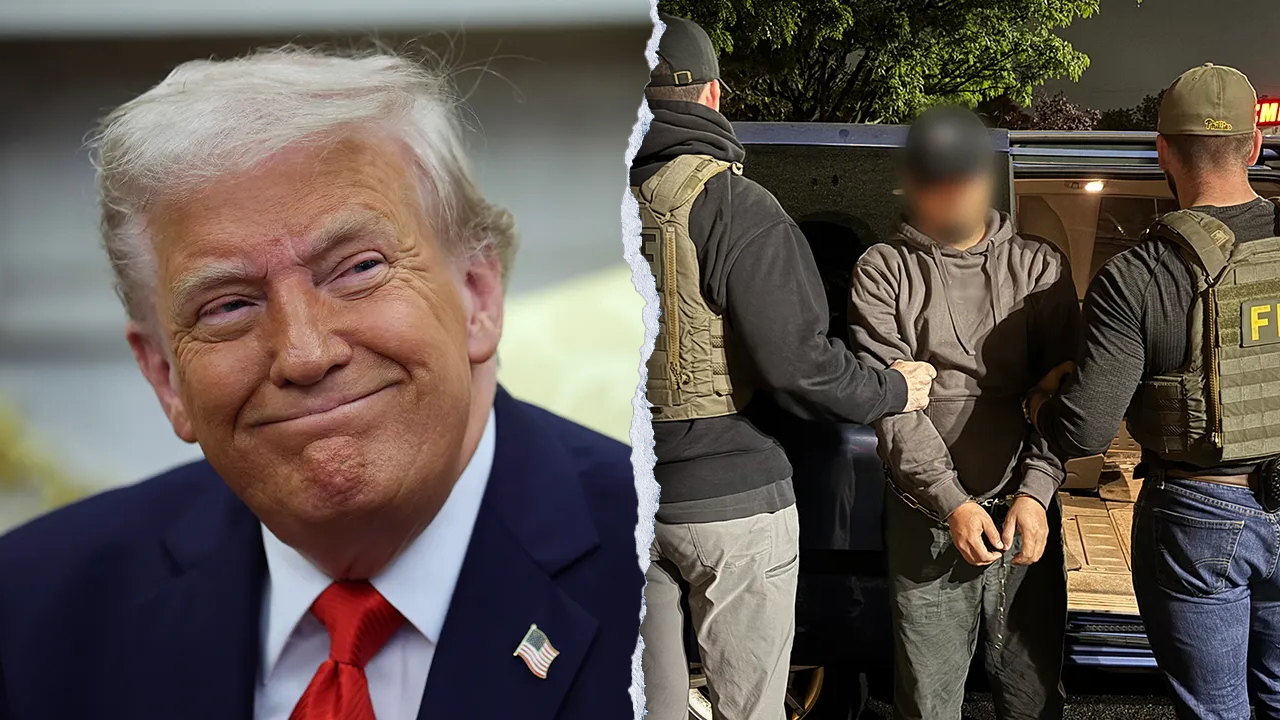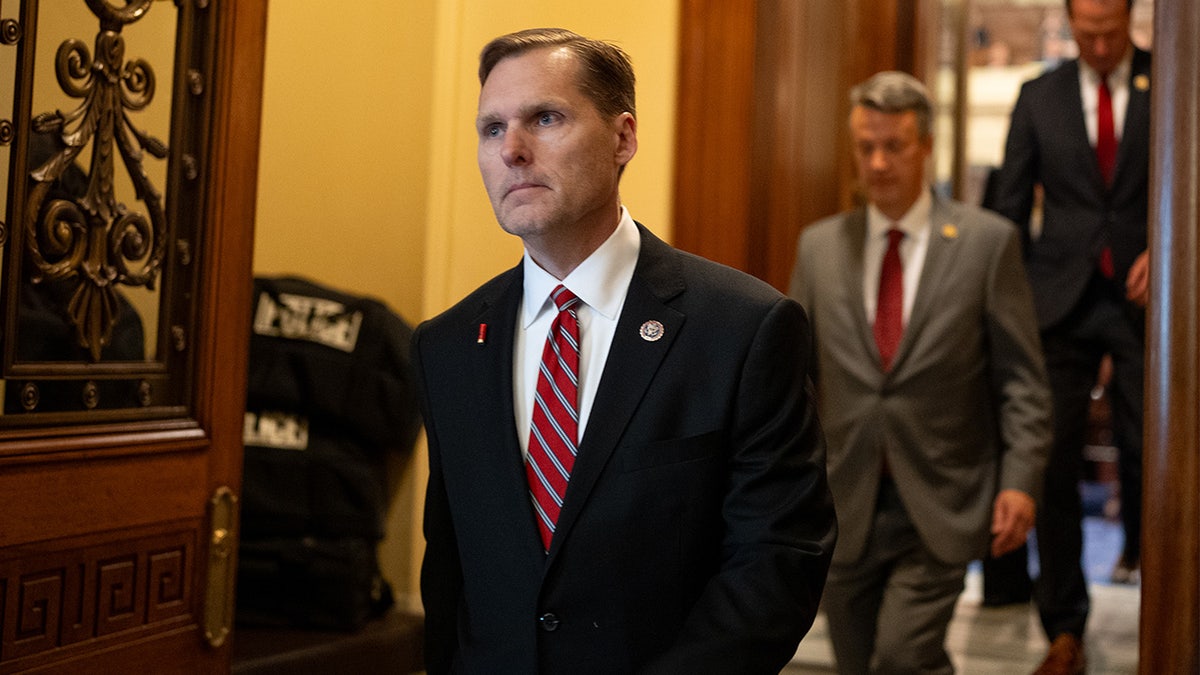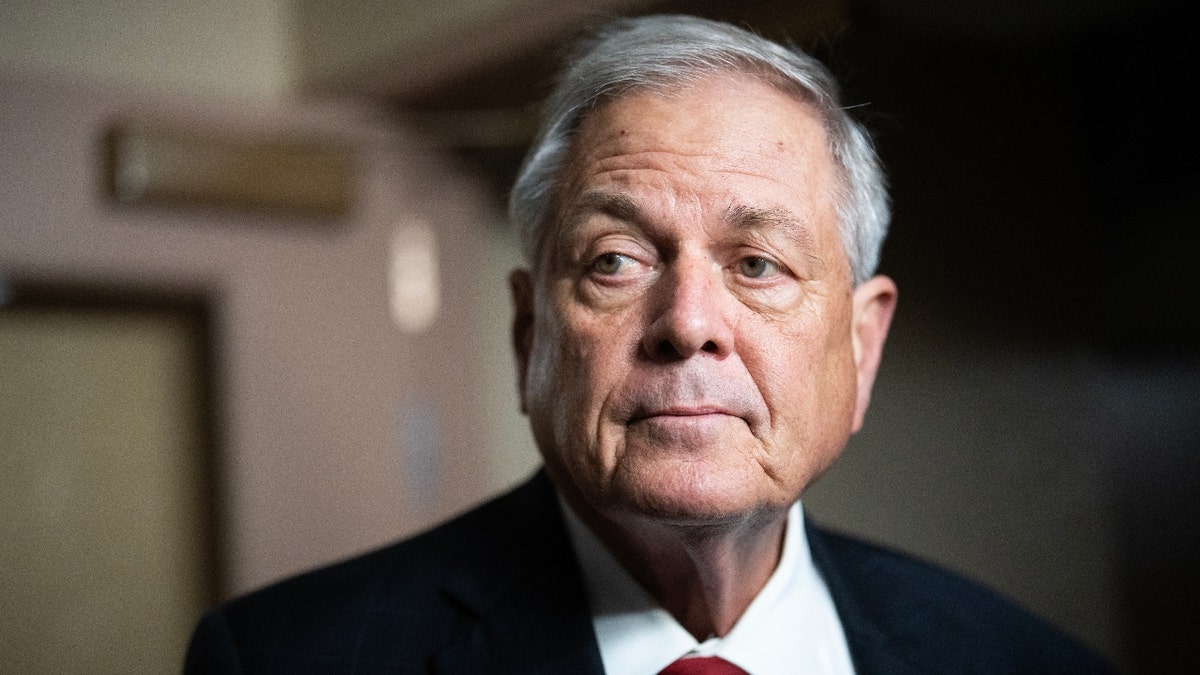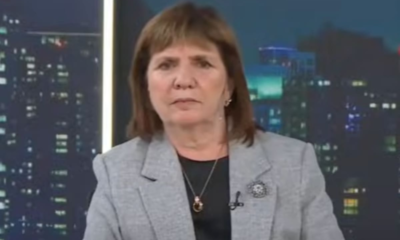INTERNACIONAL
With Trump’s backing Israel pushes deeper into Gaza as pressure builds for hostage deal

Nearly a month into Israel’s renewed ground operation, U.S. backing appears to be shaping the conflict on multiple levels—militarily, diplomatically and politically. Israeli officials have suggested the chances of a hostage deal have significantly increased, with some anticipating developments within the next two weeks.
On Monday, sitting beside Israeli Prime Minister Benjamin Netanyahu in the Oval Office, President Donald Trump told reporters, «We are trying very hard to get the hostages out. We’re looking at another ceasefire. We’ll see what happens.» The remarks highlighted Trump’s dual-track approach: continued diplomatic pressure on Iran and direct support for Israel’s military campaign in Gaza.
With what Israeli officials describe as a «free hand» to operate, Israel has expanded its offensive into Rafah and the strategically significant Morag Corridor. The stated aim is to increase pressure on Hamas and help secure the release of the remaining 59 hostages.
ISRAEL LAUNCHES NEW GROUND OPERATION IN GAZA
A senior Israeli security official told Fox News Digital that the campaign is being carried out in close coordination with the United States. «Everything is coordinated with the Americans — both the negotiations and the operational activity. The goal is to bring the hostages home. We now have a free hand to act, and no longer facing the threat of a veto at the UN Security Council, unlike during the previous administration.»
The same official pointed to a shift in humanitarian policy that, in their view, has enhanced Israeli leverage. «Unlike the previous administration, the U.S. is not forcing 350 aid trucks into Gaza every day. That gives us leverage,» the official said, adding that limiting aid reduces Hamas’s ability to control the population.
On Saturday, Israeli Defense Minister Israel Katz announced the IDF had completed the takeover of the Morag Axis. The Morag Corridor — which separates Rafah from Khan Younis — is part of an effort to establish a new buffer zone and degrade Hamas’s operational capabilities. «The logic is that the more territory Hamas loses, the more likely it will be to compromise on a hostage deal,» the official said.
IDF Chief of Staff Lt. Gen. Eyal Zamir reinforced that strategy during a visit to front-line units this week. «I expect you to defeat the Rafah Brigade and lead to victory wherever you are fighting,» he told troops. The IDF had previously declared the Rafah Brigade dismantled in September, but forces have returned to key strongholds, where tunnel networks remain.
HAMAS LAUNCHES FIRST ATTACK ON ISRAEL SINCE CEASEFIRE COLLAPSE
Activity of troops of the 36th Division in the Rafah area on April 5th, 2025. (IDF)
In the same statement on Saturday, Katz warned Gazans, «Hamas is unable to protect the residents or the territory. Hamas leaders are hiding in tunnels with their families or living in luxury hotels abroad, with billions in bank accounts, using you as human shields. Now is the time to rise up, to get rid of Hamas, and to release all the Israeli hostages — that is the only way to stop the war.»
In their Oval Office meeting, Trump and Netanyahu reiterated their alignment on core issues. Netanyahu stated that Gazans should be «free to choose to go wherever they want,» in what some analysts view as a reference to renewed discussions about third-country resettlement. Trump went further, floating the idea of a U.S. presence in the Strip, noting, «Gaza is an incredible piece of important real estate. Having a peace force like the United States there, controlling and owning the Gaza Strip would be a good thing.»
Javed Ali, a former senior director at the U.S. National Security Council and now a professor at the University of Michigan, offered a more measured view of the current military strategy. «Now that we’re almost a full month into the resumption of high-intensity IDF operations in the Gaza Strip against Hamas, Israel’s military strategy appears to be focused on clearing and holding remaining pockets of known Hamas elements, which at the same time is displacing Palestinians throughout the territory.»
CEASEFIRE OVER AS ISRAEL STRIKES GAZA AFTER HAMAS REFUSED TO RELEASE HOSTAGES, OFFICIALS SAY

Israeli forces establish the Morag Corridor in Gaza. (IDF)
Ali said it remains unclear how Israel intends to manage or govern areas it clears. He drew comparisons to the U.S. experience in Iraq and Afghanistan. «The U.S. encountered its own challenges in the post-9/11 wars with similar ‘clear and hold’ approaches, since insurgent and jihadist elements in both conflicts utilized guerrilla warfare tactics and terrorist attacks.»
While the Biden administration had previously emphasized humanitarian access, Ali noted that the current White House has not publicly pressed Israel to scale back its operations. «That could change,» he said, particularly as humanitarian conditions worsen or if negotiations with Iran over its nuclear program progress. «If those talks gain momentum, Iran may pressure the U.S. to rein in Israel’s campaign against Hamas to preserve what remains of the group. Whether the U.S. team, led by Steve Witkoff, entertains such demands will be a key regional development to watch.»
On the ground, Israel has moved to reshape the humanitarian landscape in Gaza. The decision to restrict Hamas’s access to aid reflects a broader policy shift under IDF Chief of Staff Lt. Gen. Eyal Zamir, who reversed his predecessor’s stance and authorized the military to directly oversee the distribution of supplies. «Hamas will not regain control over the aid, because that was its lifeline,» an Israeli security official explained. «It’s what allowed it to maintain control over the territory throughout this period. People in Gaza know that Hamas controls the aid; if they realize that Hamas no longer does, its control within the Strip becomes ineffective.»

Israeli troops deployed to Gaza. (IDF)
Humanitarian organizations and international leaders continue to condemn Israel. U.N. Secretary-General António Guterres, speaking on April 8, condemned the ongoing blockade of aid. «More than an entire month has passed without a drop of aid into Gaza. No food. No fuel. No medicine. Gaza is a killing field — and civilians are in an endless death loop,» he said.
Israel’s Foreign Ministry spokesperson, Oren Marmorstein, strongly rejected the Secretary-General’s claims. «As always, you don’t let the facts get in the way when spreading slander against Israel,» he posted on X. «There is no shortage of humanitarian aid in the Gaza Strip — over 25,000 aid trucks have entered during the 42 days of the ceasefire. Hamas used this aid to rebuild its war machine. Yet, not a word in your statement about the imperative for Hamas to leave Gaza. The people of Gaza are braver than you — they’re calling, loud and clear, on Hamas to leave and stop abusing them.»

Israeli Prime Minister Benjamin Netanyahu with Defense Minister Israel Katz (Israeli PM)
Eugene Kontorovich, a senior legal scholar at the Heritage Foundation, told Fox News Digital: «One doesn’t need the Israeli Supreme Court to say there is no starvation in Gaza — this was admitted by the UN’s own Food Security Phase Classification, which in June found that prior UN reports were inaccurate and that there is no famine. There is no serious evidence of starvation in Gaza, and what food scarcity does exist can be attributed to Hamas pillaging and hoarding aid. As the truth comes out, it becomes clear that the starvation claims were designed to halt Israel’s legitimate self-defense against a genocidal attack.»
CLICK HERE TO GET THE FOX NEWS APP
As military and diplomatic tracks converge, Israeli officials remain cautiously optimistic that talks may soon produce results.
INTERNACIONAL
WATCH: Lawmakers break down how billions in the ‘big, beautiful bill’ boost Trump’s immigration crackdown

NEWYou can now listen to Fox News articles!
President Donald Trump’s «big, beautiful bill» was signed into law earlier this month, with Republican lawmakers celebrating a broad range of GOP victories in the massive tax-and-spending legislation.
That includes billions of dollars aimed at Trump’s crackdown on illegal immigration in the U.S. Nearly $30 billion is marked for Immigrations and Customs Enforcement (ICE) alone, and $45 billion is going toward building up detention facility capacity.
House Republicans who spoke with Fox News Digital last week hailed that funding boost, even as critics of the Trump administration accuse the White House of taking too heavy a hand on the issue.
«Having that money to now be able to work on the wall along the southern border, to be able to hire more agents, to pay them more, to invest in the technology, to patrol and secure the border – it is hugely important,» Rep. David Kustoff, R-Tenn., told Fox News Digital. «If you ask President Trump, that was the most important issue of the 2024 election.»
COMER DISMISSES BIDEN DOCTOR’S BID FOR PAUSE IN COVER-UP PROBE: ‘THROWING OUT EVERY EXCUSE’
President Donald Trump’s immigration agenda got a huge boost in the «big, beautiful bill.» (Win McNamee/Getty Images and ICE)
Rep. Michael Guest, R-Tenn., who chairs the Subcommittee on Border Security and Enforcement on the House Homeland Security Committee, said the detention facility funding is particularly significant.
Guest urged ICE to use those funds to ramp up «targeted» enforcement against illegal immigrants.
It comes as many on the left and some on the right have urged the Trump administration not to go too far in rounding up suspected illegal immigrants who otherwise pose no known threat to the public.
148 DEMOCRATS BACK NONCITIZEN VOTING IN DC AS GOP RAISES ALARM ABOUT FOREIGN AGENTS

Rep. Michael Guest urged the funding be used for «targeted» enforcement. (Getty Images)
«I think targeted enforcement, making sure that they’re going after the worst of the worst – those individuals who have either committed crimes in the United States or we learn after they released into the interior that they had committed crimes in their country origin, [or] those people who have final orders of removal,» Guest said.
«Those are the people that I believe that ICE needs to be targeting. Those are the people where you see widespread support from the American public that they want to get off the street.»
Rep. Ralph Norman, R-S.C., pointed out that ICE had been asking for that funding for some time.
«Tom Homan has done a tremendous job. He’s indicated for a while he needs more money to keep doing his job. And he’s being fought by everybody, particularly the sanctuary cities, to prevent that from happening,» Norman said. «The least we can do is provide the funding, and we did it.»
And Rep. Derrick Van Orden, R-Wis., said he hoped the increased border and immigration crackdown would help fight the ongoing drug crisis still plaguing the U.S.

Rep. Ralph Norman said border czar Tom Homan has «done a tremendous job.» (Williams/CQ-Roll Call, Inc)
CLICK HERE TO GET THE FOX NEWS APP
«So in order to have a secured border, in order get rid of these criminal, illegal aliens that are raping and murdering American citizens on the regular, we have to have a very strong immigration enforcement system,» Van Orden said.
Reps. Brandon Gill, R-Texas, and Andrew Clyde, R-Ga., highlighted the funding for Trump’s border wall and for more ICE personnel, respectively.
The bill passed the House earlier this month and was signed into law by Trump on the Fourth of July.
In addition to funding immigration operations, it also extends key parts of Trump’s 2017 Tax Cuts and Jobs Act (TCJA), rolls back some Biden administration-era green energy subsidies, and imposes new work requirements for federal aid.
INTERNACIONAL
Ukraine sees sweeping protests over bill weakening anti-corruption agencies

NEWYou can now listen to Fox News articles!
Ukrainians are taking to the streets after the passage of a controversial bill threatening the autonomy of two anti-corruption agencies.
The legislation gives the general prosecutor — who is appointed by the president — increased authority over the country’s National Anti-Corruption Bureau of Ukraine (NABU) and the Specialized Anti-Corruption Prosecutor’s Office (SAPO).
Ukrainian President Volodymyr Zelenskyy is now facing the largest protests since Russia’s 2022 invasion. Demonstrators gathered outside the presidential administration in Kyiv, while other protests took place in smaller cities across the country.
Ukrainians protest in the first wartime rally against a newly passed law, which curbs independence of anti-corruption institutions, amid Russia’s attack on Ukraine, in central Lviv, Ukraine, on July 22, 2025. (REUTERS/Roman Baluk)
UKRAINE’S ZELENSKYY NAMES NEW PRIME MINISTER FOR FIRST TIME SINCE RUSSIA’S WAR BEGAN
The vote came one day after two NABU officials were arrested over alleged ties to Russia, according to Reuters. The outlet said that Ukraine’s domestic security agency, which carried out the arrests, also conducted background checks.
«I gathered all heads of Ukraine’s law enforcement and anti-corruption agencies, along with the Prosecutor General. It was a much-needed meeting — a frank and constructive conversation that truly helps,» Zelenskyy wrote on X. «We all share a common enemy: the Russian occupiers. And defending the Ukrainian state requires a strong enough law enforcement and anti-corruption system — one that ensures a real sense of justice.»

Ukrainian President Volodymyr Zelensky and Italian Prime Minister Giorgia Meloni (not pictured) hold a joint press conference during the Ukraine Recovery Conference 2025 (URC2025) at Roma Convention Center La Nuvola, on July 10, 2025, in Rome, Italy. (Antonio Masiello/Getty Images)
SENATE MOVES TO REIN IN TRUMP ADMINISTRATION’S FLUCTUATING UKRAINE POLICY
«In effect, if this bill becomes law, the head of SAPO will become a nominal figure, while NABU will lose its independence and turn into a subdivision of the prosecutor general’s office,» the agencies said in a joint statement on Telegram, according to the Associated Press.
European Commissioner for Enlargement Marta Kos expressed concern over the vote, saying «the dismantling of key safeguards protecting NABU’s independence is a serious step back.»
Zelenskyy said in another X post, following a meeting that included NABU Director Semen Kryvonos, SAPO Prosecutor Oleksandr Klymenko, Prosecutor General Ruslan Kravchenko, and Head of the Security Service of Ukraine Vasyl Maliuk, that «anti-corruption infrastructure» needs to be «cleared» of «Russian influence.»

Protesters hold placards during a rally against a law that restricts independence of anti‑corruption institutions on July 22, 2025, in Kyiv, Ukraine. (Ivan Antypenko/Suspilne Ukraine/JSC «UA:PBC»/Global Images Ukraine via Getty Images)
CLICK HERE TO GET THE FOX NEWS APP
The Ukrainian government’s latest move risks endangering its bid to join the European Union, as a crackdown on internal corruption is a requirement. Additionally, it could strain the warming relationship between Zelenskyy and President Donald Trump, who has accused the Ukrainian leader of being a «dictator without elections.»
Both the U.S. and the E.U. have backed activists in Ukraine demanding independent institutions be established and empowered to clean up corruption, according to Axios. However, the pressure dropped significantly after Russia invaded Ukraine.
INTERNACIONAL
«Vemos personas que se desmayan en la calle»: más de 100 organizaciones internacionales alertan sobre una «hambruna masiva» en Gaza

Estados Unidos apuesta a un alto el fuego
Negociaciones trabadas
Israel,Franja de Gaza,Hamas

 POLITICA3 días ago
POLITICA3 días agoExpulsada del Gobierno, Victoria Villarruel empieza a tomar distancia, pero no tiene proyecto político para este año

 POLITICA3 días ago
POLITICA3 días agoLa CGT evalúa adelantar a octubre el recambio de sus autoridades y define una movilización contra Milei

 POLITICA2 días ago
POLITICA2 días ago🗳️ El chamuyo de las elecciones en la Provincia: se postulan, pero no a asumen
























